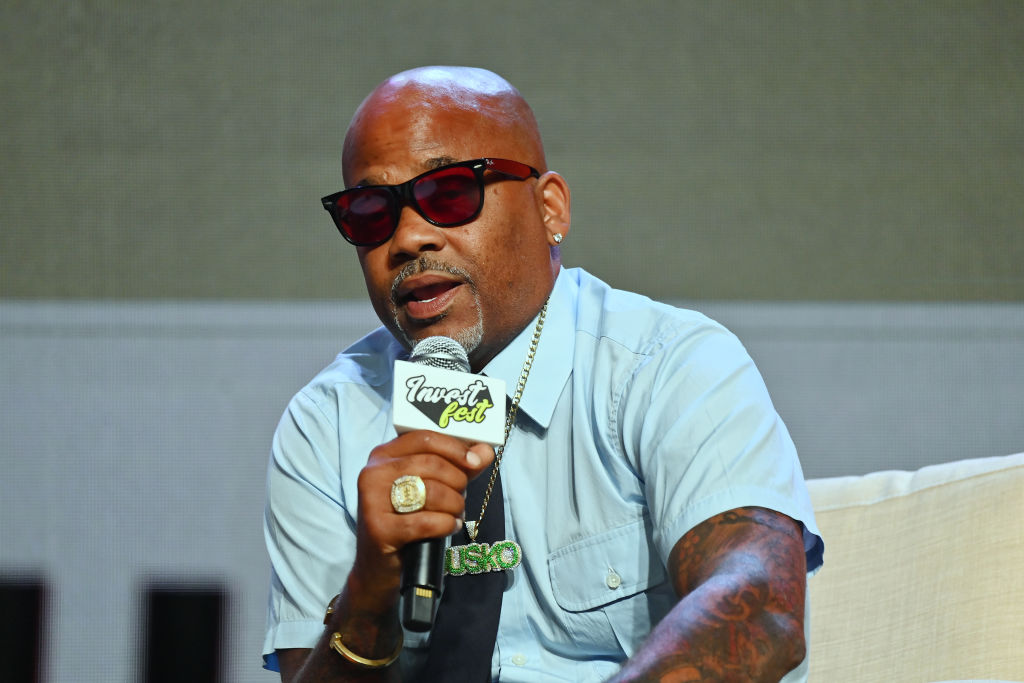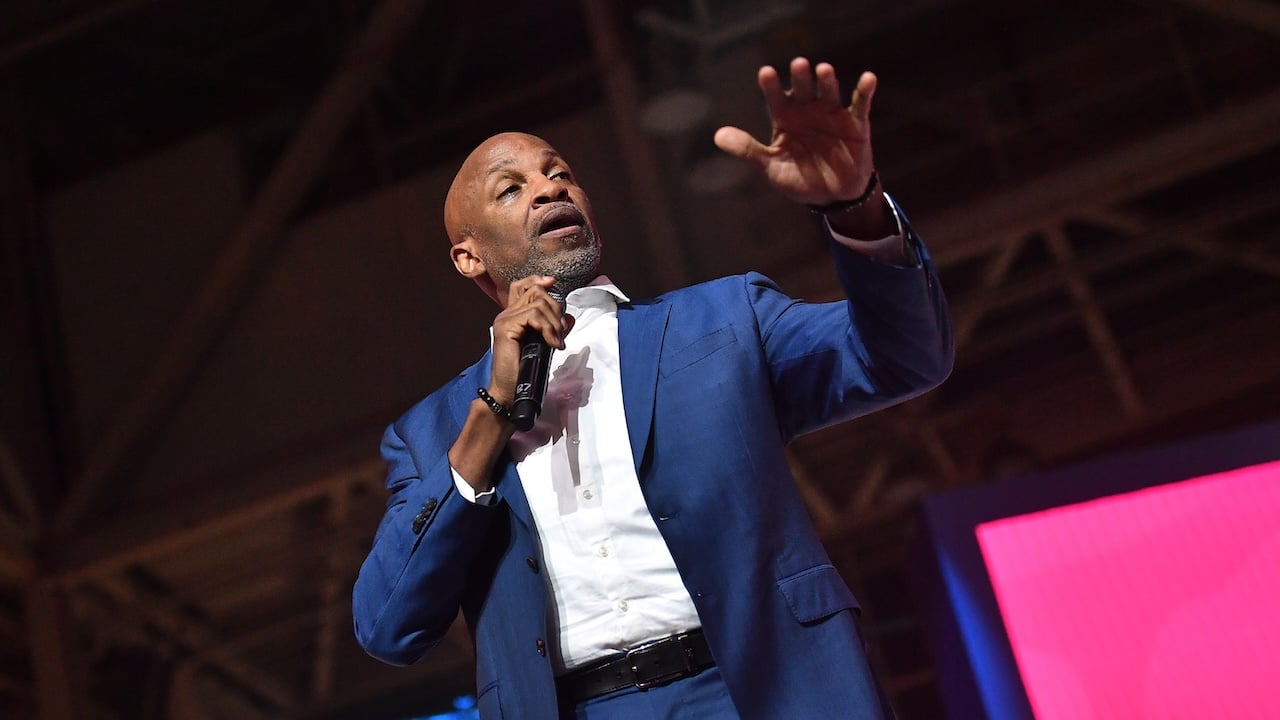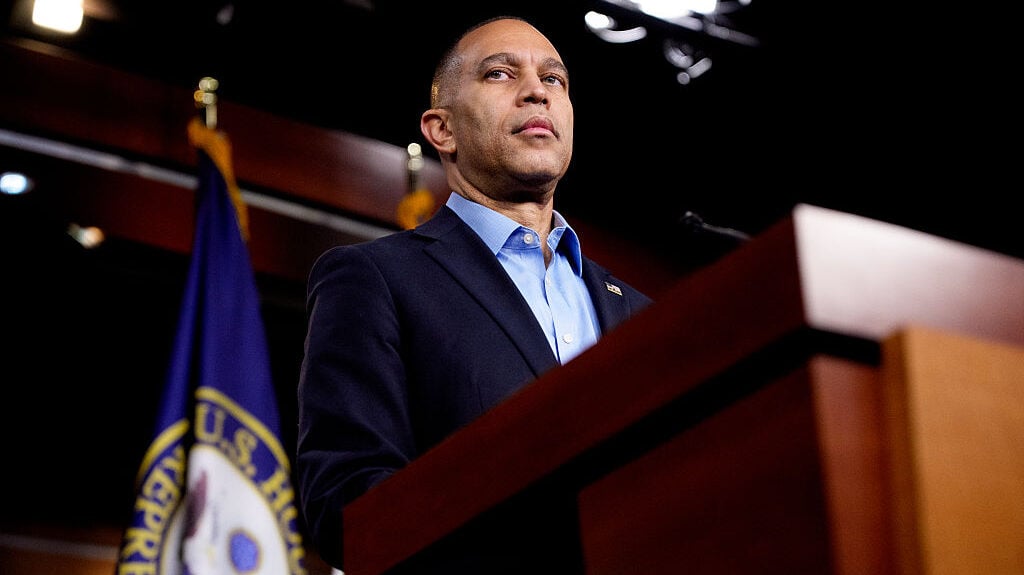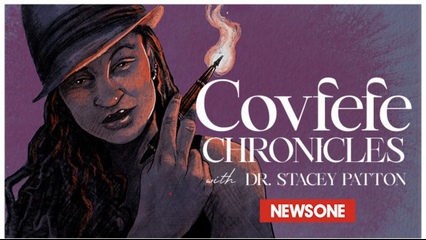Confessions Of A Recovering A–hole: Dame Dash Clearly Isn’t In Therapy


My name is Corey Richardson, and I’m a recovering asshole*.
Anyone who knows me knows that 2001 Dame Dash used to be the man I truly aspired to be like. He was my Patronus. His self-confidence was unmatched. His persona filled articles in Vibe magazine with legendary tales of how he moved. I even watched his “Apprentice”-style reality show on BET with his signature line, “Life is the dash.” To this day, if I have some good news and I want to flex on these bammas, I’m doing the Dame Dash dice roll dance.
Let me keep it a buck with y’all. I wanted to be the brash, unrepentant, loudest voice in the room who could move with an air of intention and freedom most Black men I knew could only dream of. Dame wasn’t just the co-founder of Roc-A-Fella Records. He was the walking embodiment of an ethos: say what you want, do what you want, and never apologize for winning.
When I saw Dame barking orders in the studio or cursing someone out backstage at a show, I didn’t see arrogance; I saw liberation. I saw a man who didn’t feel the need to conform or perform for anyone, not even the industry that made him rich. And for a young Black man trying to find his place in the world, that looked like the closest thing to freedom.
There was something about operating at the highest levels of the game with that type of DGAF energy that inspired me.
But two decades later, after watching Dame Dash’s recent meltdown on The Breakfast Club, it didn’t feel like freedom anymore. In fact, it was the opposite. It felt like a man trapped. Trapped by his own mythology, trapped by a value system that no longer serves him, trapped by the ghost of who he used to be. And if I’m honest, it felt uncomfortably familiar.
Because, until quite recently, I used to be that man too.
Here’s the thing about Black masculinity: it’s not just an identity, it’s an inheritance. We are handed a blueprint for existing predicated on toughness, resilience, and bravado, and told that those are the primary skills we’ll need to survive. And for a time, they actually work. Being hard-headed, aggressive, or even outright disrespectful is expected – even rewarded – in a world that often only respects dominance. But eventually those skills become burdens.
At a certain point, simply surviving isn’t enough.
One of the hardest lessons I’ve learned, mostly in therapy, is that the man you were is not the man you get to remain forever. Growth requires leaving parts of yourself behind. Parts that you were comfortable with. Parts that you thought defined you.
Therapy has forced me to confront the fact that my own brashness, my own willingness to be a jerk in the name of “authenticity,” wasn’t sustainable. It wasn’t strength; it was hiding. It was a shield I used to protect myself from the bigger risk of being truly seen.
Dame Dash is addicted to who he used to be. And a lot of Black men, myself included, know that addiction all too well. Success can look like a palace, but it can become a prison.
Let’s be clear: being a jerk is easy. It doesn’t take reflection, only aggression. It doesn’t require growth, only volume. If you present yourself as someone who is only in it for himself, people eventually stop expecting more from you. They stop asking you to be or do more than the minimum. They stop looking at you as anything other than a necessary burden to accomplish a goal. No one expects much, so whatever you do is more than enough. Being a jerk is safe.
But safe is not the same as whole.
The danger of holding on to that persona too long is that it calcifies. What once looked like confidence becomes caricature. What once looked like freedom becomes flailing. And suddenly you’re 50 years old, sitting at home alone, thinking about how everyone else in your life is wrong, or worse, shouting at people half your age on a radio show, trying to prove you still matter, when the uncomfortable truth is that you don’t matter to yourself anymore.
Dame Dash in 2001 was aspirational. Dame Dash in 2025 is a warning.
When I finally broke down and went to therapy, it wasn’t because I wanted validation. It was because I was tired. Tired of myself. Tired of my self-destructive behaviors. Tired of carrying around a version of manhood that was built on defensiveness and ego. I had pushed people away who saw what I could be because they weren’t allowing me to go back to who I used to be.
Therapy taught me that change and loss are not the same thing. You don’t lose yourself when you evolve; you expand yourself.
But getting there means surrendering the myth of who you thought you had to be. It means saying goodbye to the man who got you this far, and making a difficult peace with the fact that he’s not equipped to take you the rest of the way.
That’s what makes mental health such a precarious subject for Black men. We are taught to protect, not to process. To endure rather than evolve. And yet, the truth is that the real courage isn’t in holding on, it’s in letting go.
But letting go of the past isn’t easy because it’s familiar and safe. The future is unknown, unseen, and terrifying. Back in the day isn’t just a statement; it’s a salve.
Black men of a certain age know the temptation of nostalgia. We remember when we were the ones actively reshaping culture. When our hustle, our bravado, our style made us untouchable. But there’s a thin line between honoring the past and embalming yourself in it.
For Dame, 2001 was the peak. Roc-A-Fella was dominant, Jay-Z was ascending, and Dash was the outspoken business mind and mouthpiece of the movement. But instead of evolving past that moment, he seems to have spent two decades trying to relive it. And that’s the tragedy; when you keep trying to be who you were, you forfeit the chance to become everything you could be.
The irony is that we clown Dame Dash now, but some of us are just quieter versions of the same story. Stuck in old ways of moving, clinging to outdated personal measures of success and manhood, unable to imagine ourselves outside of our prime years. That job we used to have. That car we used to drive. That woman we used to date. That club we used to kick it at. None of it should matter, but the past just lingers there, robbing us of joy in the present.
At a certain stage of life, call it your “big age,” you have to ask harder questions. Not “How do I get back to who I used to be?” but “Who do I need to be to feel like I’m enough today?” Not “How do I rebuild what I lost?” but “What am I supposed to be building now?”
Being a jerk isn’t a long-term strategy for success because it is an inherently limiting state.
Because this is the unavoidable truth: you can only be a jerk for so long before everyone around you gets tired. You can only hold onto your jerk youth until your psyche, your body, your relationships, and your reality force you to face yourself.
The people who once applauded your bravado now roll their eyes. The women who once tolerated your ego now ignore you. The friends who once hyped your antics avoid your calls. And all you’re left with is you, the one person you’ve been running from the whole time.
Watching Dame Dash unravel publicly isn’t entertainment; it’s a cautionary tale. It’s what happens when evolution is rejected, when self-reflection is postponed, when the myth of yesterday suffocates the possibility of tomorrow.
Dame Dash reads as a man who has never had to confront himself in therapy. He presents as someone who truly believes that he’s just one or two moves away from being who he used to be. His moves aren’t sustainable because his intentions are rooted in reclamation instead of healing.
But the work is possible. I know because I’ve lived it. The Corey Richardson of 2023, the brash, defensive, quick-to-anger version of me, isn’t who I am today. And don’t get me wrong, that guy was fun. That guy got stuff done. That guy made it possible to grow.
Therapy didn’t erase him, but it did teach me how to appreciate his work while moving on from his baggage. It gave me the language to identify my hurts, the courage to soften my edges, and the humility to accept that being loud isn’t the same as being free. Being a jerk isn’t a form of bravery; it’s just an act to cover for weakness.
The man I was is a relic. The man I am becoming is a project. That’s not a loss. That’s liberation.
For someone who has spent his adult life trying to emulate the man, Dame Dash’s public meltdowns are painful to watch, but they’re also instructive. They remind us that clinging to who we were is a form of slow death. Clinging to your former relevance only hastens your current irrelevance. That hiding behind bravado is a way of avoiding the deeper work of healing. And that is the real flex, the one that actually sustains us, the ability to evolve.
Black men, especially those of us who came of age idolizing jerks who looked free, need to take note. The work of becoming is hard, it’s humbling, and it’s never finished. But it’s also the only way forward.
So I’ll say this plainly: the Dame Dash that existed in 2001 and the Corey Richardson that existed in 2023 are no longer viable at this time. They don’t need to be resuscitated or revered. They need to be released.
Because the future doesn’t belong to the men we used to be. It belongs to the men we’re willing to become.
*Editor’s Note: Corey Richardson used the word a–hole throughout this piece, but because NewsOne likes to keep things family-friendly as much as possible, we changed every other instance of a–hole to the word “jerk.” Keep that in mind as you read this, and feel free to substitute a–hole for jerk each time.
Corey Richardson is originally from Newport News, Va., and currently lives in Chicago, Ill. Ad guy by trade, Dad guy in life, and grilled meat enthusiast, Corey spends his time crafting words, cheering on beleaguered Washington DC sports franchises, and yelling obscenities at himself on golf courses. As the founder of The Instigation Department, you can follow him on Substack to keep up with his work.
SEE ALSO:
Correction vs. Cruelty: Why Getting Punched In The Face Matters
What's Your Reaction?
 Like
0
Like
0
 Dislike
0
Dislike
0
 Love
0
Love
0
 Funny
0
Funny
0
 Angry
0
Angry
0
 Sad
0
Sad
0
 Wow
0
Wow
0
































